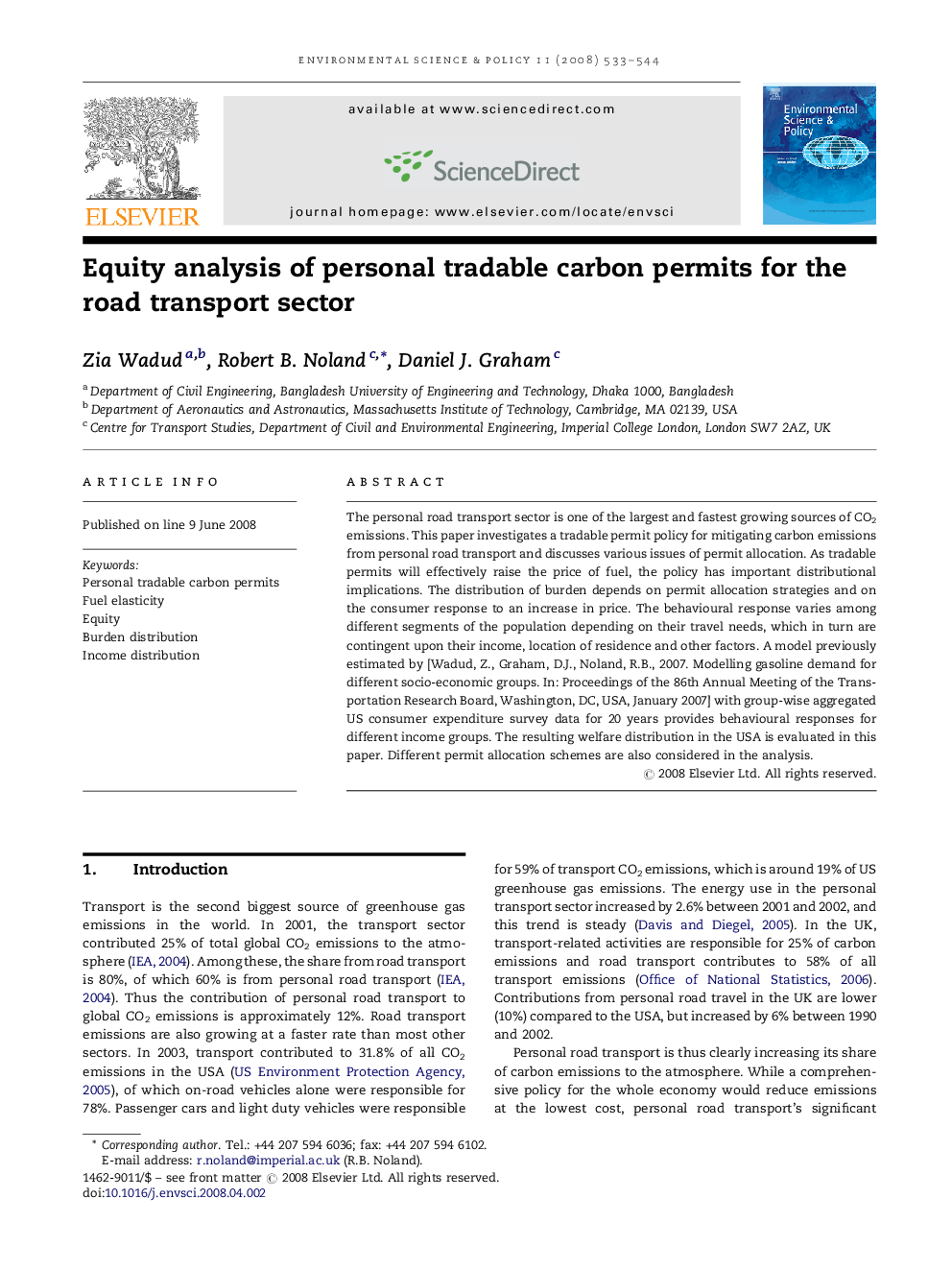| Article ID | Journal | Published Year | Pages | File Type |
|---|---|---|---|---|
| 1054181 | Environmental Science & Policy | 2008 | 12 Pages |
The personal road transport sector is one of the largest and fastest growing sources of CO2 emissions. This paper investigates a tradable permit policy for mitigating carbon emissions from personal road transport and discusses various issues of permit allocation. As tradable permits will effectively raise the price of fuel, the policy has important distributional implications. The distribution of burden depends on permit allocation strategies and on the consumer response to an increase in price. The behavioural response varies among different segments of the population depending on their travel needs, which in turn are contingent upon their income, location of residence and other factors. A model previously estimated by [Wadud, Z., Graham, D.J., Noland, R.B., 2007. Modelling gasoline demand for different socio-economic groups. In: Proceedings of the 86th Annual Meeting of the Transportation Research Board, Washington, DC, USA, January 2007] with group-wise aggregated US consumer expenditure survey data for 20 years provides behavioural responses for different income groups. The resulting welfare distribution in the USA is evaluated in this paper. Different permit allocation schemes are also considered in the analysis.
